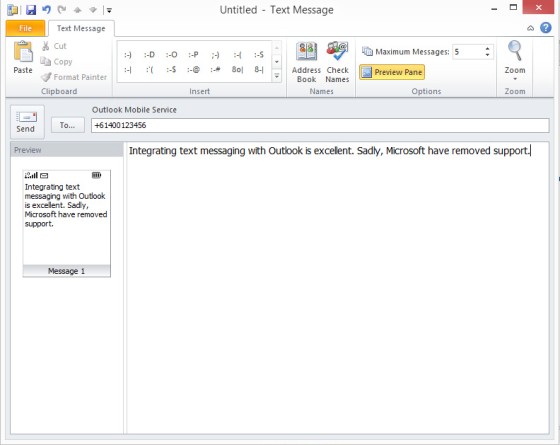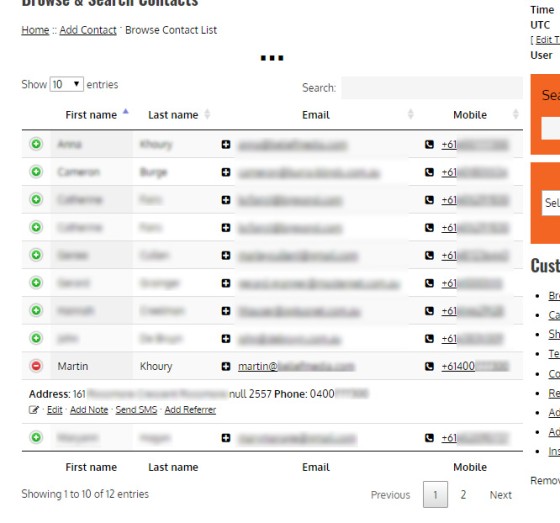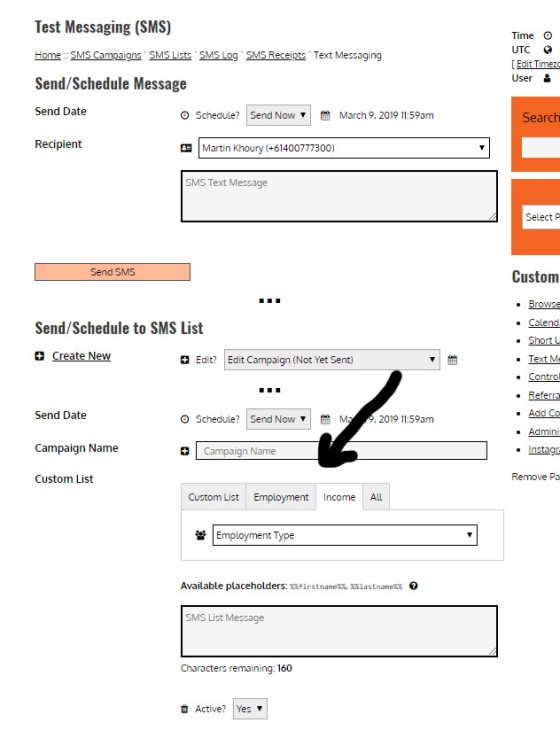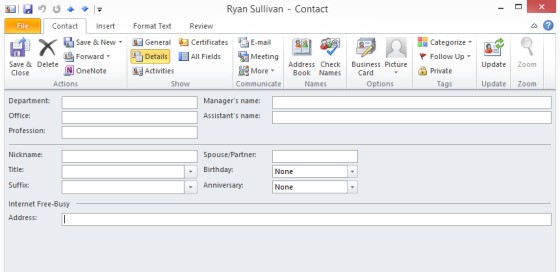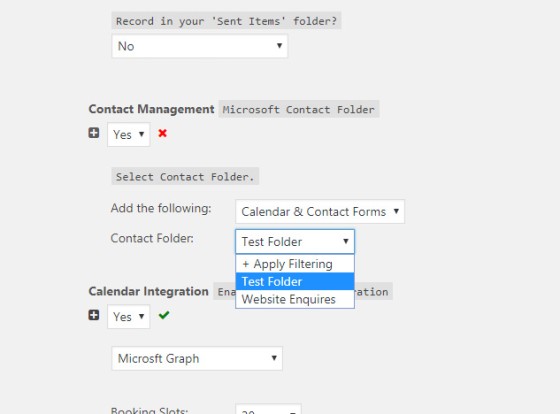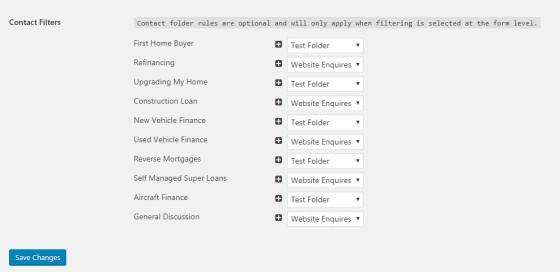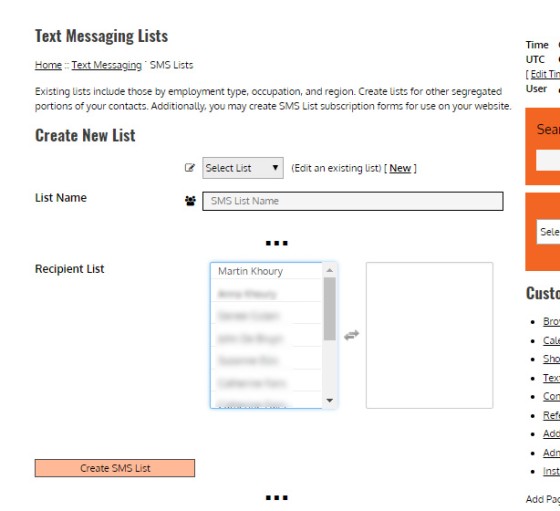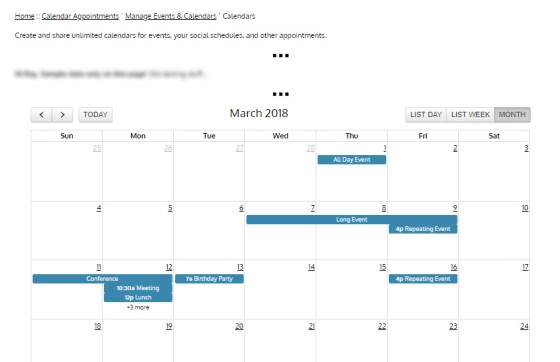BeliefMedia issues NOTACs (NOTice To All Clients) routinely; sometimes once per day, and sometimes only a couple of times per month. They include information that isn't part of a scheduled course or growth package. We rarely publish them on our website. In this case, however, given the nature of the information we wanted to ensure we had adequate reach.
■ ■ ■
This post details changes that were introduced or proposed in NOTAC 2019030801, 2019030802, and 2019030901. Some of the most recent changes to our industry-leading plugin as detailed in the latest NOTAC will be detailed here.
While we've always been at the forefront of lead generation and business Growth (particularly in the finance space), these changes will further future-proof businesses with self-hosted and leading proprietary technologies that will always keep you more profitable than your competitors.
Support of Microsoft Services
There's likely no tool more important to any business than email. With this in mind, your email deliverability, reliability, and rich features are essential... and while we supply an excellent service with our own email hosting we can't compare what we provide against the premium service offered by a Microsoft with their staff of thousands supporting and continuing to develop an industry-leading product. Microsoft's products are exceptional and priced in such a way that businesses would be foolish to trust anybody else with their email.
Keep in mind while reading this document that we will continue to provide our own hosted email services. However, whether you're hosted with us or anybody else, we'll soon be placing restriction on how mail might be used with marketing in an attempt to preserve the continued integrity of your primary marketing email.
In deciding which email service to support above any other we spent nearly three months evaluating Microsoft (Office365/Exchange) and Gmail (G Suite). We might be accused of bias since we use Microsoft Exchange ourselves, but after careful evaluation of the features of each service, the API  features of each platform, and a general survey of those systems already being used by our clients, Microsoft came out (way) in front (the result had nothing to do with Ryan's incessant nagging over the last 18 months to support the MS suite).
features of each platform, and a general survey of those systems already being used by our clients, Microsoft came out (way) in front (the result had nothing to do with Ryan's incessant nagging over the last 18 months to support the MS suite).
Use of a Microsoft Office365/hosted Exchange product is not mandatory but it will give you more immediate access to some newer features before Google support is introduced (no timeline currently exists).
Services that will be enhanced by using Microsoft includes, but is far from limited, to the following:
- Full and complete integration with Outlook (calendar, tasks, contacts, scheduling, events, social, advertising etc).
- Integration of our FileInvitation and eBookCreation service with Microsoft's OneDrive cloud (all uploaded documents are synced directly to your PC). Our EDGE referral and client nurturing system will automatically populate calendars with reminders (rather than an iCal file) and contact points will also be created.
- Enhanced social scheduling from a dedicated Outlook calendar (not totally unlike our proprietary Instagratify service).
If you're open to the idea of having your business email supported by Microsoft Exchange, and getting access to 1TB of storage with OneDrive, we recommend the basic Office 365 Business Essentials package  for $6.90 per user per month (paid directly to Microsoft). If offline (installable) versions of various Microsoft products are required the Office 365 Business Premium suite might be a better fit (for $17.20 per month).
for $6.90 per user per month (paid directly to Microsoft). If offline (installable) versions of various Microsoft products are required the Office 365 Business Premium suite might be a better fit (for $17.20 per month).
You can expect us to roll out new and ready-to-go Microsoft features on the 1st of April.
Email Deliverability
It's likely you host your email with the same company that hosts your website. While there's potentially a large number of problems associated with hosting email with a website host or ISP, the most significant disadvantage is that your own email deliverability might be compromised by the behaviours of other users. As we take on more and more brokers (in particular) we're seeing some of them vacating from best practice, sending to unsolicited distribution lists, and sending emails full of spam keywords. Once an email or server IP address is blacklisted it's usually very time-consuming and difficult – and sometimes impossible – to have that record removed. There's a certain absurdity in trusting critical email infrastructure to a host when we have no influence or knowledge of the wayward conduct by businesses outside of our control. It's possible (if you’re not hosted with us) that your website is hosted alongside websites that promote illicit content, hate speech, or even spammers.
Moving forward, and if sending email via our email server, there will be significant changes such as restrictions imposed on the number of emails that can be sent per hour or per day (only applicable for email marketing). If using another host we still make recommendations with regard to rate-limiting to ensure your legitimate emails don't earn a reputation for spam.
The spam issue is one of many that should dictate the use of an email provider such as Google or Microsoft since they're integrally connected with the email ecosystem with respected deliverability protocols.
Our email policy changes, instructions on how to integrate the Office365 SMTP servers  with your email software and website are detailed in NOTAC 2019030802.
with your email software and website are detailed in NOTAC 2019030802.
Disabling Outlook SMS Gateway
Note: This section is applicable only to those that send text messages via Outlook 2013 or earlier to our SMS server. No other SMS services are affected.
Previous versions of Outlook provided a fantastic feature that permitted one to send text messages to individuals or groups from their address book. However, this feature was removed from Outlook2013 with functionality moved to SharePoint (with rumours suggesting that future Microsoft developments will see text messaging relegated to Skype almost entirely). Once Microsoft stopped supporting the feature via Outlook we published a retirement date for our SMS server as 1st January 2018. Since the product was always intended to be retired we rarely introduced it to incoming clients despite its usefulness.
While we were happy to continue supporting our SMS server (specifically set up to support incoming Outlook messages) it's now very rarely used as our clients move towards other solutions (usually because they've upgraded their Office products).
We introduced the BeliefMedia SMS Gateway (our own service) in 2007. We hosted the service on a server in our own office and simply couldn't compete with upline Telcos in terms of reliability (the server was built for our own use but eventually opened up to clients). We shut down that service last year after all clients were directed to an alternate commercial (or self-hosted) solution.
In early 2018 Telstra became the default SMS service we recommended to clients, and the primary provider for which we'd offer support. We've determined it to be the best service of its kind in the country… and its reliability is excellent. We've build our own middle-man gateway to handle scheduling, STOP messages, email and text replies, and so on.
Our own Telstra API is now integrated with most of our applications and has proven to be an exceptional product. While the Telstra SMS service is a paid product, our API is provided to all clients with a lifetime licence as an 'essential service'.
The OMS service will be completely disabled on Friday 15th March 2019. We've spoken directly to the few that relied on the service and have already established in-house alternatives.
Keep in mind that we do expect to reintroduce alternative means of text messaging for Outlook and other Microsoft services but it won't be supported by the soon-to-be-retired OMS server.
Those that use the system for sending messages to event attendees need not worry; we've created a SMS feature from within the revised event WordPress plugin.
Existing platform SMS messaging features aren't entirely unaffected. These changes are discussed below.
Platform Contacts
Many businesses (especially our mortgage brokers) end up with multiple sources of contacts. Syncing one source of data against another is problematic and rarely effective at catching duplicates or errors. Our Platform contact system only added to the conundrum by adding yet another source of data to the mix. While it was always our intent to introduce synchronisation, we put additional development of the project on hold because of the multiple devices we had to support.
First, let's look at how the Platform contacts are currently rendered:
While these contacts are created on the system, they're sent to the Platform and retrieved only when necessary via the AJAX interface. However, the contacts represent a duplicate and (generally) incomplete source of data. Not good.
What we propose (pending feedback) – with development scheduled for commencement and completion this month – is that we now source Microsoft contacts as the Platform's primary source of contact data. Via a number of resources available from within the Microsoft Graph API  we can rely almost exclusively on Microsoft contact data for our Platform contact data and broader marketing efforts.
we can rely almost exclusively on Microsoft contact data for our Platform contact data and broader marketing efforts.
Does this limit the scope of our segregation?
Short answer: yes. It does... probably... at least initially. By limiting contacts by what is filed in your Microsoft contact folders we're initially unable to segregate our audience in the manner you're familiar with (which includes employment, salary, and employment type, loan type, and so on). Our proposal may compromise our ability to send text messages to highly segregated audiences. For example, consider our Platform text messaging page:
Note the tabs for 'Contact List', 'Employment', 'Income', and 'All'. It's the Income and Employment Type that presents the most immediate problem. How do we include this data into our Microsoft contact directory? This is where our proposed system introduces flaws that are less than perfect.
First, it should be noted that there are lesser utilized fields in Outlook Contacts that permit us to add a large amount of data for each contact – including (free text) custom fields... but it requires enormous amounts of discipline to complete this task manually. Bottom line is that the 'Details' and 'All fields' tabs presents us with enough options to recreate the Platform contact fields (and more) if used efficiently.
In our updated email subscription plugin we have an option to filter contacts into contact folders based on a defined option or 'filtering' (the same way we do with contact lists). This will certainly assist in creating rather broad segregated categories.
What 'filtering' does (as opposed to simply hard-defining the destination contact folder) is send a contact to a contact folder based on the type of enquiry (First Home Buyer, Refinance, etc.). Now, this kind of segregation may be all you need; when’s the last time you sent a text message to a list of plumbers?
However, when a user visits your website for fact finding purposes, or to submit an online application, they'll provide additional information than can be used to populate or update Outlook contact fields. Based on the information they provide we'll be able to further filter their place in our hierarchical (or nested) contact folder structure (as well as update or create a contact). We may be able to move a contact from one folder to another as necessary when a CRM (such as SalesTrekker) notifies our system of a change in workflow status. For example, once a first home buyer settles they're no longer a first home buyer and need to be moved.
So, the change to Microsoft Contacts is potentially a very positive move (despite what will invariably be a tumultuous transition).
The Platform's custom contact lists (used mainly for text messaging) will likely remain unaffected. The custom lists are stored in an encrypted text file on your website server and are always manually created from available source data.
What will be my primary source of data?
If we move ahead on the proposed changes, the contacts available from within Outlook will always be your primary source of contact information... and this is part of the appeal of the move. Updating your desktop or online Outlook contact data will synchronise across all your devices as it always has done... but it will also represent the immediately-available source of data within the Platform. Our proposed move to Microsoft Contacts isn't totally unlike our decision to use Microsoft's calendars and other features (as described in brief below); we should never be creating a tool to manage data when there's a more authoritative source freely available to us.
There are a number of other issues we have to look at more closely - such as how we'll handle the contact 'Notes' field. In fact, there are dozens of features we'll talk to our clients about in order to garnish feedback and build a list of feature requests before we start the move (assuming that the consensus fully supports our proposal).
Platform Calendars
The unlimited calendars we hosted on our Platform were initially intended for use in scheduling social media only. They eventually became a source of data that was synced back and forth between any available calendar - so they served as both a primary and a slave. In a move towards best practice we've made the decision to eliminate writable calendars from the Platform. Instead, Microsoft calendars (and later Google calendars) will be your primary and only writable source of scheduling appointments.
It's highly likely we'll continue to mirror certain calendars - such as your social media schedule - back into the Platform for perusal.
Conclusion
Using Outlook sources (and later Google) data exclusively for Platform contacts, email, and calendars is another step in supporting the Microsoft ecosystem and building seamless integration between applications. In reality, most won't even notice the difference; contacts will still render in exactly the same way and features will work as they always have done.
We're highly committed to completely eliminating duplicate data and manual actions when automation is capable of providing a solution and this is one situation where we believe the advantages far outweighs any disadvantage.
Obviously, technology is pointless without strategy and sound tactical implementations to increase lead generation, nurture referrers, and develop meaningful business relationships. This information is provided as part of the Growth MG document series and scheduled discussions with your Relationship Manager.
If you have any feedback, or you would like to discuss how this change might impact upon your business, please make contact with us. We require a full consensus before moving ahead with any development.



